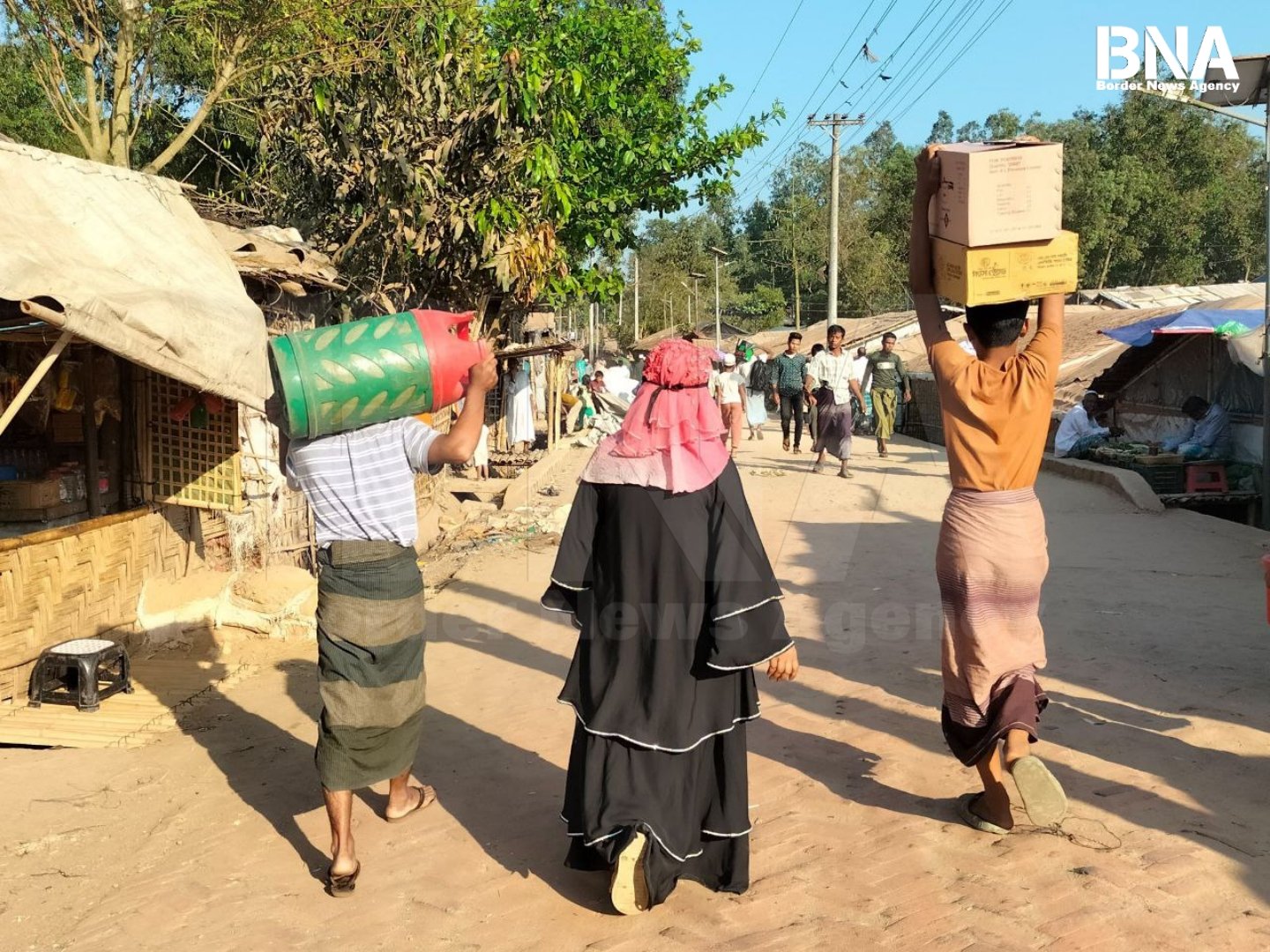Cox’s Bazar, Bangladesh Hundreds of newly arrived Rohingya refugees, fleeing renewed violence and persecution in Myanmar’s Rakhine State, have begun receiving gas cylinders and stoves in Bangladesh’s refugee camps.
While the distribution of these essential items is a crucial relief effort, the new arrivals continue to face immense hardships, including food shortages, inadequate shelter, and uncertainty about their future.
Since late 2023, conflict has intensified in Rakhine State, forcing many Rohingya to flee their homes. Reports from survivors indicate that they faced severe military crackdowns, forced conscription, arbitrary arrests, and restrictions on movement, making it impossible to access food, healthcare, and livelihood opportunities. Many fled through treacherous routes, some crossing mountains and rivers, while others risked their lives at sea to reach Bangladesh.
Upon arrival, they are exhausted, malnourished, and traumatized. Unlike those who arrived in 2017 and have been living in the camps for years, these new refugees have no established shelter, limited access to humanitarian aid, and little knowledge of how to navigate life in the overcrowded camps.
In an effort to support them, humanitarian agencies and local authorities have begun distributing gas cylinders and stoves, ensuring that families can cook meals without resorting to firewood collection a practice that has led to environmental degradation in the region.
The provision of gas stoves also reduces the burden on women and children, who previously had to walk long distances into forested areas to collect firewood, often facing safety risks.
A newly arrived refugee, Rahima Begum, who fled Buthidaung with her four children, shared her experience: “For weeks, we survived on whatever little food we could find while hiding in the forests. After arriving in Bangladesh, we had no way to cook the food given to us. This gas stove is a blessing, but we still need more support to rebuild our lives.”
Despite this relief, the challenges remain overwhelming. The new arrivals lack proper shelter, sanitation, and access to medical care. Many are still living in makeshift tents made from plastic sheets and bamboo, vulnerable to harsh weather conditions.
Additionally, humanitarian organizations have warned of funding shortages, which could impact food distribution and other essential services. With international attention shifting to other global crises, support for the Rohingya remains uncertain.
A camp leader in Cox’s Bazar, Mohib Ullah, expressed concern: “Giving gas and stoves is good, but these refugees need long-term solutions, housing, education, and legal recognition. We are still stateless, and every new group that arrives only adds to the suffering of our people.”
Human rights organizations have urged the international community to step up efforts in addressing the root causes of the crisis, calling for diplomatic pressure on Myanmar to ensure a safe and dignified return for the Rohingya. However, with Myanmar’s political situation remaining unstable, repatriation seems unlikely in the near future.
As the newly arrived refugees try to rebuild their lives in Bangladesh’s already overburdened camps, the need for sustained humanitarian support, policy interventions, and long-term solutions remains more urgent than ever.






